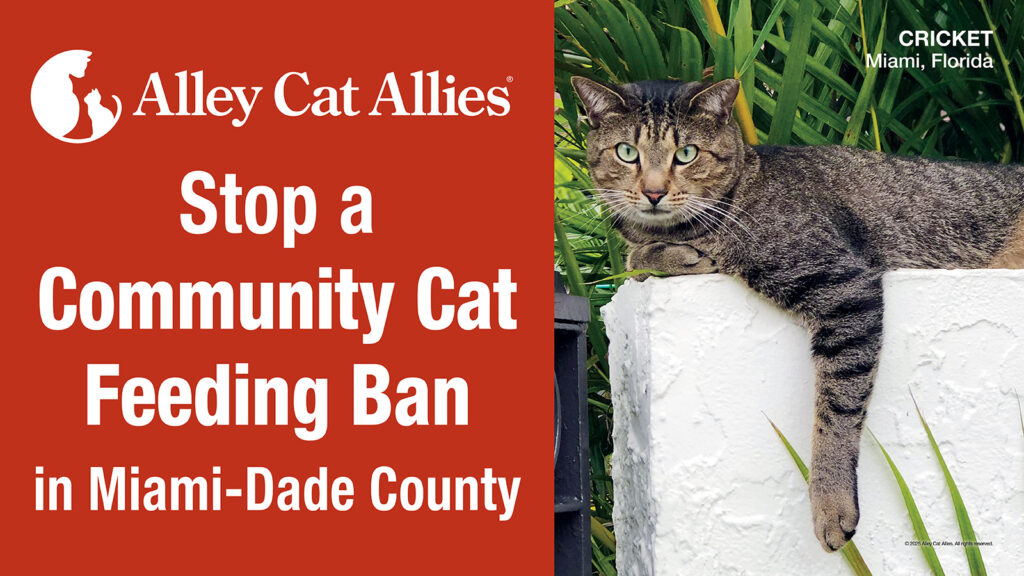UPDATE: VICTORY!
The proposed feeding ban was WITHDRAWN from the agenda of the Miami-Dade Board of County Commissioners after its sponsor revoked it. Thank you to all who took action on behalf of Miami-Dade’s community cats!
Without our outspoken advocacy, community cat caregivers in the county could be facing $100 fines for their compassion and community service. A feeding ban would also have done irreparable damage to the county’s longstanding Trap-Neuter-Return (TNR) program, which relies on strategic feeding for success.
We must act fast to stop a proposed ordinance to criminalize the feeding of community cats in Miami-Dade County! Please take just a minute to take action below.
Miami-Dade’s Board of County Commissioners will discuss the cruel proposal at its meeting on Tuesday, May 20. If this greatly misguided ordinance is approved, feeding community cats on all commercial and public property in the county will be illegal—with a penalty of $100.
Community cat advocates around Miami-Dade County are shocked and dismayed at the proposal, which would criminalize compassion and do irreversible damage to the county’s active Trap-Neuter-Return (TNR) program. We have to raise our voices now and demand that the ban stops in its tracks on May 20.
Why Cat Feeding Bans Are Harmful and Ineffective
A feeding ban against community cats will not make the cats disappear or benefit the community. It will simply cause cats to suffer and criminalize the compassion of people spending their own time and money to make the community a better place. Cats outdoors are community members and always have been, and they pose no threat to the people, businesses, or environment of Miami-Dade county.
Furthermore, feeding bans inherently hinder Trap-Neuter-Return (TNR), the only humane and effective approach to community cats. If caregivers are prohibited from feeding, trapping cats is far more difficult, which ultimately leads to fewer spays and neuters taking place. Passing this ordinance is counterproductive to the goal of addressing the community cat population.
Miami-Dade County advocates, and the county itself, have carried out TNR for years because it works. Rather than waste resources on targeting community cat caregivers and harming cats, the county should focus on increasing TNR efforts.
Learn more about the dangers of cat feeding bans and other punitive laws.


